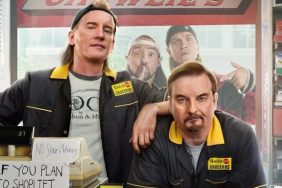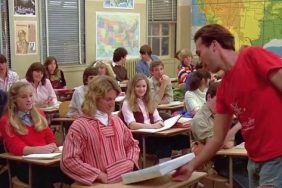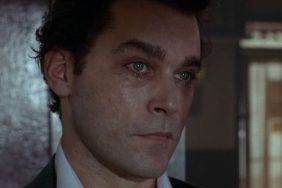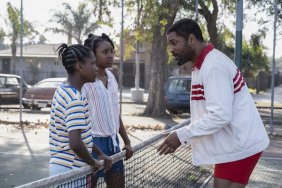Before Kevin Smith turns Justin Long into a walrus – yes, really, that’s the plot of Tusk – we’re taking a moment to look back on the career of the popular filmmaker, podcaster and Comic-Con celebrity. And since this is Best Movie Ever, that can only mean we’re about to answer the single most important question in the history of the universe: The Best Kevin Smith Movie Ever?
Check Out: The Best Movie Ever: Nicole Kidman
Join CraveOnline’s film critics William Bibbiani, Witney Seibold, Fred Topel and Brian Formo as they defend their picks, and then scroll down to the bottom of the page to vote for your own favorites. Did our critics get it right? Are they talking out of their asses? Only you have the power to let us know.
William Bibbiani:

I’m not one of those critics who hates on late era Kevin Smith (alright, alright, Cop Out sucks), but it sure seems like Kevin Smith had more to say when he was young and hungry than after he became an established pop culture icon. Dogma had cogent, if sometimes awkwardly dramatized critiques about Catholic culture and Chasing Amy was a potent, if perhaps a little naive examination of male anxieties about their lovers’ sexual histories. But there’s a knowing quality to even those films, a sense that Kevin Smith was increasingly aware of his place in the indie cinema firmament and trying to use his powers for good, instead of for another Mallrats.
But Clerks remains as potent as ever. There’s no ego involved; indeed, Clerks plays as a plaintive wail of self-effacing despair. Trapped perpetually behind the counter of a seedy retail establishment, unsupervised because no one cares who he is or what he does back there, Dante (Brian O’Halloran) is repeatedly forced to endure the very familiar indignities or no-collar employment. He’s enslaved by his own sense of responsibility to a job that does not reciprocate his loyalty. His neighboring video store clerk Randall (Jeff Anderson) seems to have the right idea. Their lives are so meaningless that he seemingly gets away with any kind of behavior, be it gross negligence or ego-driven revenge against their customers.
Encapsulated within a social system that still defines itself by high school relationships, our ambition-free heroes are the apex of universality because they are so very specific. Smith, in part because of his amateur staging and lighting techniques, presents a world that feels real to everyone who had to live through the same crap as his heroes (read: most of us, at one time or another). It’s low-fi because that’s how his characters live. Color was too expensive for Smith back in the Clerks era, and although it may have been an accident, it feels appropriate. His film is about recognizably human characters who haven’t graduated to the big leagues of life, and maybe never will. An appropriate subtitle would have been Dante’s Purgatory. I call it the best Kevin Smith movie ever made.
Fred Topel:

Witney Seibold:

Although he himself would modestly deny this, Kevin Smith was one of the most important voices of the 1990s indie film boom. Although people like Spike Lee, Steven Soderbergh, Michael Moore, Quentin Tarantino, and Richard Linklater were already hoisting the flag for independent films – and with it an unprecedented creative explosion in American film – it was the success of Kevin Smith’s 1994 debut Clerks that ensured the emotional involvement of an entire generation of college kids. All of a sudden, indie films became about casual conversation, sex, and Star Wars. Kevin Smith’s voice is unique, and his form of banter – out of the mouths of young men who are wallowing a bit too deeply in their own adolescence – is hilariously crass and undeniably sincere.
Smith’s best film has always been Chasing Amy, his third, released in 1997. A New Jersey comic book artist falls in love with a spunky blonde lesbian. At first he tries to be her friend, but soon finds that his attraction is not waning. Eventually, she finds that she is loving him back. And then he finds out that she had a varied and explicit sexual history that she has not been sharing. Chasing Amy is less about sexuality and more about the male ego. The men in this film discuss openly and at length about how dating an “experienced” woman can be damaging, and how it’s actually their own problem and not the woman’s. Chasing Amy is open and frank and dirty and outright hilarious. It’s also moving and emotionally disarming. It’s an antidote to the quotidian romcom pabulum that infects theaters on a regular basis. In most romantic comedies, plot machination prevents the leads from coming together, when a frank conversation would take care of everything. Chasing Amy has those conversations first thing, and then has the conversations that follow it. There’s a refreshing, dirty emotional logic to Chasing Amy, and it remains one of the great romances of the 1990s.
Brian Formo:

I’m not much of a Kevin Smith fan, but I can appreciate him. He’s like a TV dinner: you’re not really sure how much of contains real food. And while it can be filling, the dessert is always burnt to a crisp.








